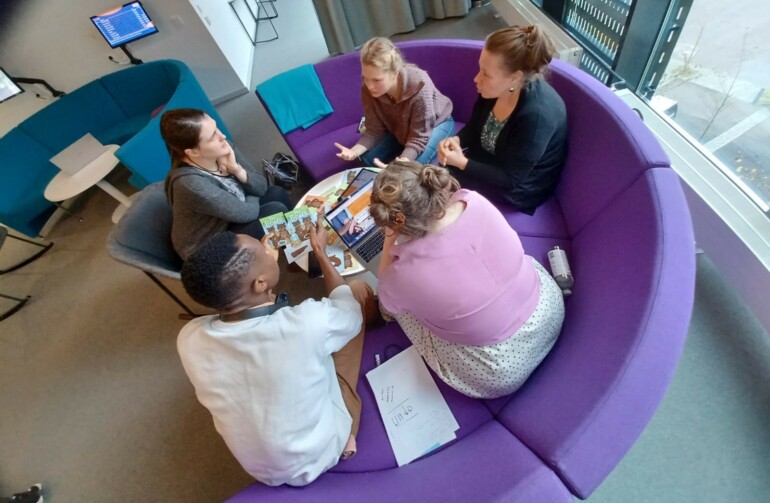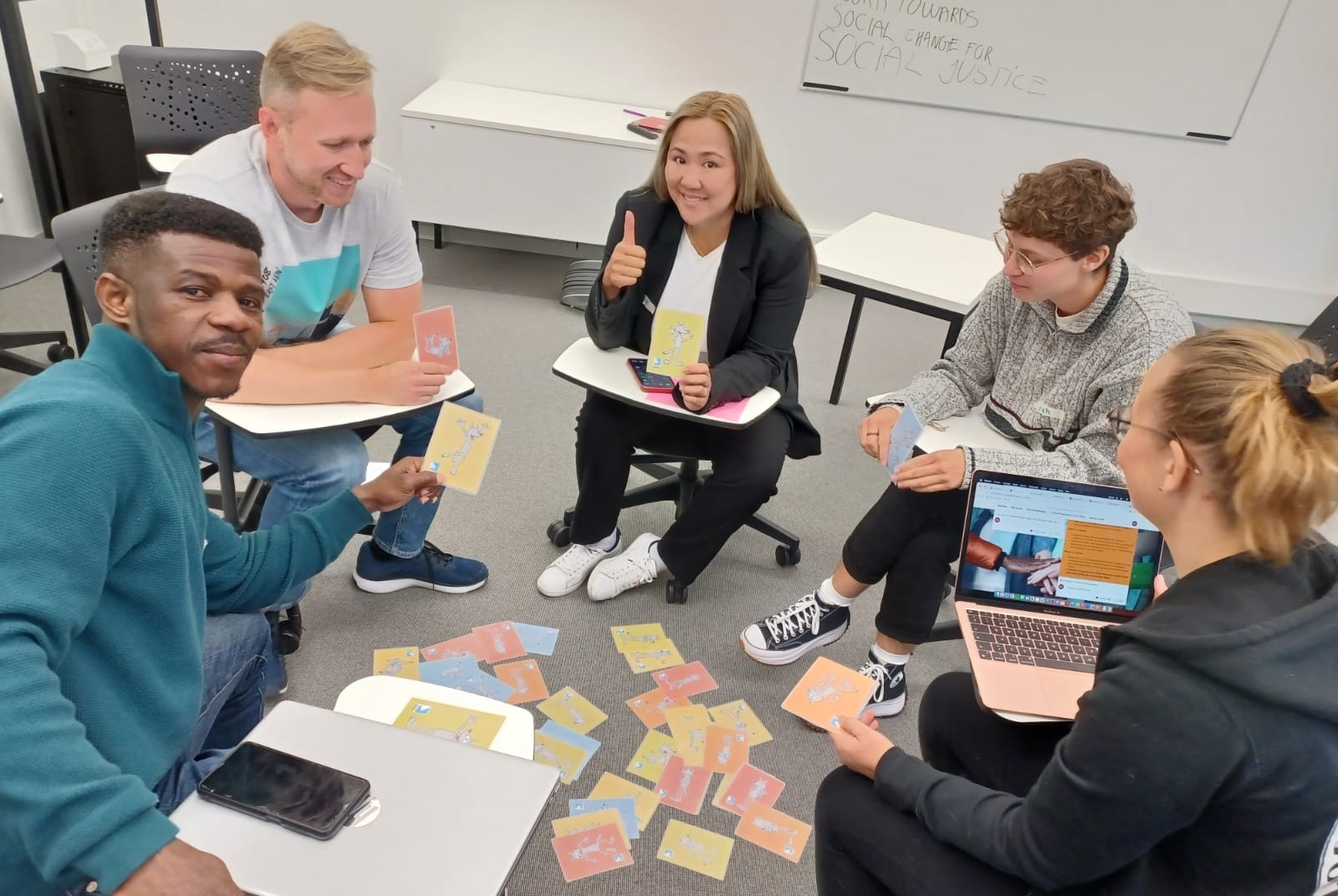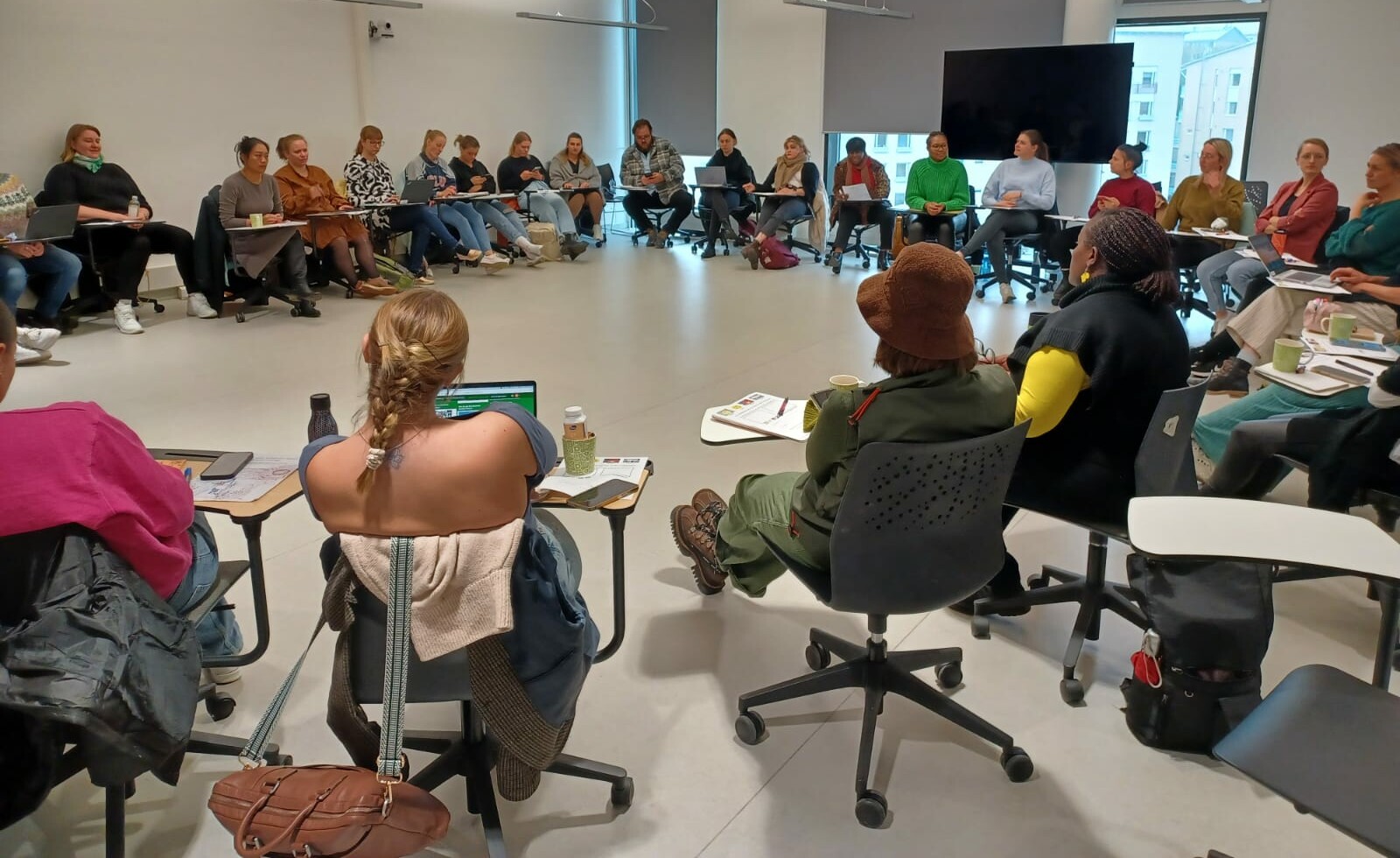International Intensive Weeks on Planetary Health and Diversity Inclusion

During the autumn break week in October, Diak hosted students and teachers of two Erasmus+ Blended Intensive Programmes (BIPs) on Helsinki campus. Diak organises these international courses together with partner HEIs and this autumn, the topics were “Planetary Health” and “Diversity Inclusion for Social Cohesion (DISCO)”.
The Erasmus+ BIP courses use blended learning methods. The online learning and teamwork were facilitated on Howspace platform and the intensive week in Helsinki allowed participants to learn together face-to-face in the same place. These courses bring together higher education institutions, their teachers, and students to reflect on current topics. At best, for Diak students, taking part in a course can also be an encouragement to use English first time in their studies.
– Students get to know each other across borders, which can also make it easier for them to go on a student exchange, says Heidi Zitting, Senior lecturer of Diak in the DISCO BIP.
Mutual understanding and dialogue
 Diversity Inclusion for Social Cohesion or DISCO BIP provided an opportunity to reflect on current issues related to discrimination, racism, dialogue and understanding. Participants came from partner HEIs in Norway, Estonia, and Germany, and one Ukrainian teacher represented the InterDiac organisation. The theme of diversity was naturally present with multicultural and multilingual student participants.
Diversity Inclusion for Social Cohesion or DISCO BIP provided an opportunity to reflect on current issues related to discrimination, racism, dialogue and understanding. Participants came from partner HEIs in Norway, Estonia, and Germany, and one Ukrainian teacher represented the InterDiac organisation. The theme of diversity was naturally present with multicultural and multilingual student participants.
The diversity of the course was enhanced not only by the multicultural backgrounds of the participants but also by the fact that the course was jointly designed by teachers from different institutions. The BIP course also provides a rich opportunity for teachers to learn and work together, drawing on their own strengths.
– I would recommend the course to all students and teachers, even if they are uncomfortable about English language. You don’t have to be perfect in English, so you can get by with less than perfection. When we do things together, we can support each other, Heidi Zitting sums up.
The intensive part of the course was primarily held on Diak’s campus in Helsinki, but also included visits and other activities. For example, the participants were able to visit the Pimé café, run by visually impaired people, which offers a reflection on the life of a visually impaired person.
– I decided to go on the BIP course because the opportunity presented itself. I thought it could also be a challenge to get to know a subject that I am otherwise not so familiar with, said Merlyn Dunderdale, a student at the University of Tartu.
Dunderdale urges people to attend BIP courses with an open mind.
– Even if the course does not at first glance match your interests, it is still a good idea to go into it with an open mind. Taking the time and being present will give you new perspectives!
Planetary Health
 The Planetary Health BIP at Diak is a unique course at Universities of Applied Sciences. The course is international and multidisciplinary, focusing on the topical issue of planetary health. The multidisciplinary approach increases understanding of the expertise of other fields.
The Planetary Health BIP at Diak is a unique course at Universities of Applied Sciences. The course is international and multidisciplinary, focusing on the topical issue of planetary health. The multidisciplinary approach increases understanding of the expertise of other fields.
– As a teacher, it has been important for me to learn from partner universities about different ways of making pedagogical choices. For teachers, the BIP course is a process where you can learn a lot,” says lecturer Meg Sakilayan-Latvala from Diak.
The course is built around a series of online team assignments and an intensive week on campus. Catherine Mburu, a Social Service student at Diak, says that while the intensive week is packed with a lot of new knowledge, it is done through practice.
– It’s great that the BIP course allows everyone to get involved and that the student’s role is not just to listen to the lecturer. A lot of work is also done in groups,” says Mburu.
Diak hosts Erasmus+ Blended Intensive Programme courses every year. The topics and themes change, but all BIPS consists of both the virtual part and the intensive week on campus. The next Erasmus BIPs will take place in May and will focus on Multidisciplinary Simulation, Digital Transformation and Asset-based Community Development.
